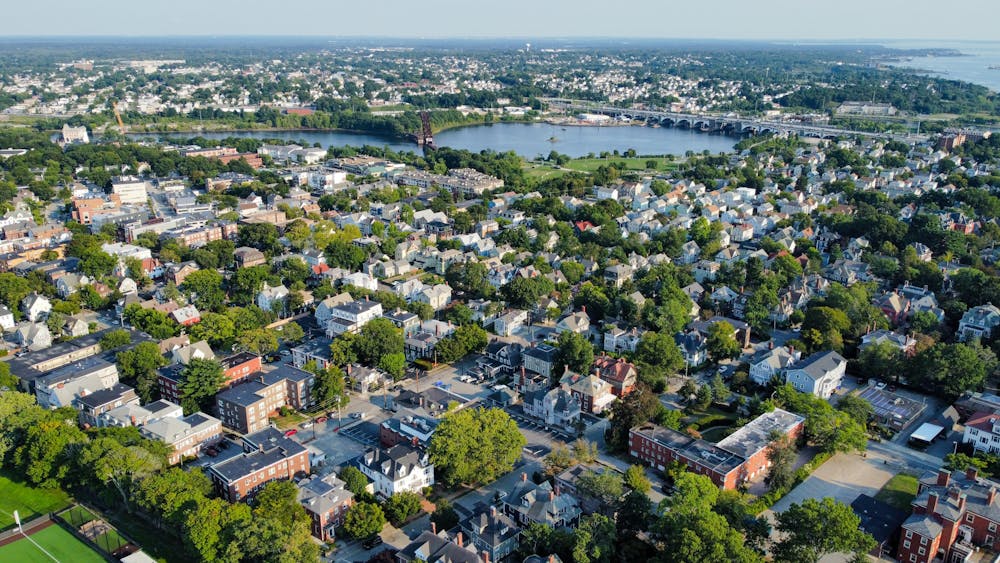Johanny DiZoglio, who has rented in Providence since the age of 16, remembers the days she could rent a three-bedroom apartment for as cheap as $750 each month. Now, about two decades later, DiZoglio has been without housing for the past three months as she struggles to find an apartment for her family that she can afford with a $3,500 monthly income.
DiZoglio is one of many Providence residents affected by the recent increases in property prices in the city. Rent has increased 11% in Providence in the past six months and 23.8% overall in the past year. According to State Senator Tiara Mack '16, who represents the city, many of her constituents are “seeing 280% or more increases overnight.”
Rent hikes are influencing the decisions of Brown students like Orion Bloomfield ’24, who, after being approved for off-campus housing fairly late this year, opted not to live off-campus “because of the insane price(s)” of the available properties.
Now Bloomfield and his friends are being proactive, looking for properties in advance of his senior year. His search is largely confined to townhouse units in Fox Point, with monthly rents per person mainly concentrated around $700 but going “as low as $650” and “as high as $900.” But he says that most of the properties closer to campus, on Thayer, charge monthly rents “around $1200-plus.”
Local landlord Ed Kazarian attributes his rent increases to the elevating costs of utilities and property taxes, as well as the fact that non-owner occupied properties don’t receive the same tax exemptions that owner-occupied properties do. While the city’s new tax-and-spending plan, which started in July, lowered the residential tax rate from 2.46% to 1.78%, the Boston Globe reported that owners of Providence rental properties were predicted to “almost certainly” pay more in property taxes under a plan that set the residential tax rate to 1.85% due to the extent that property values have increased. But properties owned by the occupant benefit from a homestead exemption of 45% off the home’s value for taxation purposes.
“In other words, you can have two buildings side by side, identical,” but the one occupied by the homeowner pays 45% less in taxes than the one that’s rented out, Kazarian said. This is a difference of $10,000 versus $18,000, he added.
Andrew Grande, a spokesperson for Providence Mayor Elorza, wrote in an email to The Herald that “while there is no perfect formula and we had difficult decisions to make,” the city’s budget was informed by “choices that best incentivize home ownership” while lowering “tax rates in order to distribute the impact as best as possible.” Grande stated that the actual tax rate has not increased during Elorza’s tenure.
“The market conditions that we are seeing both locally and nationally certainly present challenges for both renters and homeowners,” Grande wrote. “That is why we are prioritizing Rescue Plan funding to address our housing crisis and meet the demands of our residents.”
But when non-owner-occupied property tax increases are offloaded onto tenants, this places renters, particularly those in need of affordable housing, in a precarious situation.
DiZoglio moved out of her $1100-per-month, two-bedroom apartment due to substandard conditions — her landlord wouldn’t fix the ceiling leakage in her children’s bedroom. Now, she drops her children off at their father’s place while she couch surfs, staying with different friends depending on nightly availability. Despite working a full-time job in addition to other work on the side, DiZoglio said she can’t afford a clean, livable apartment big enough for herself and her three children.
“It’s a really difficult situation,” she said. “Even if you don’t have a luxury lifestyle, it’s still very expensive.” She explained that she does “any little thing that could help” cut costs: no longer eating out, trying to save money on gas and keeping the lights off as much as possible.
To complicate matters further, DiZoglio took a better-paying job in Massachusetts, requiring an “hour-and-a-half (daily) commute back and forth” from Providence. As a result, she’s unable to stay at any homeless shelters, as she said they all close by the time she gets back to the city.
“Working all day, I come home and … the time I have for my children is so little before bedtime comes,” DiZoglio said.
She said the city needs rent control, stating that if prices continue as they do,“we are going to see more people on the street.”
“We want to work, we want to have a normal lifestyle, but it seems that it doesn’t matter how much we work — it’s not going to happen,” DiZoglio said. “This issue needs to be looked at by higher authorities. It needs to be addressed.”





